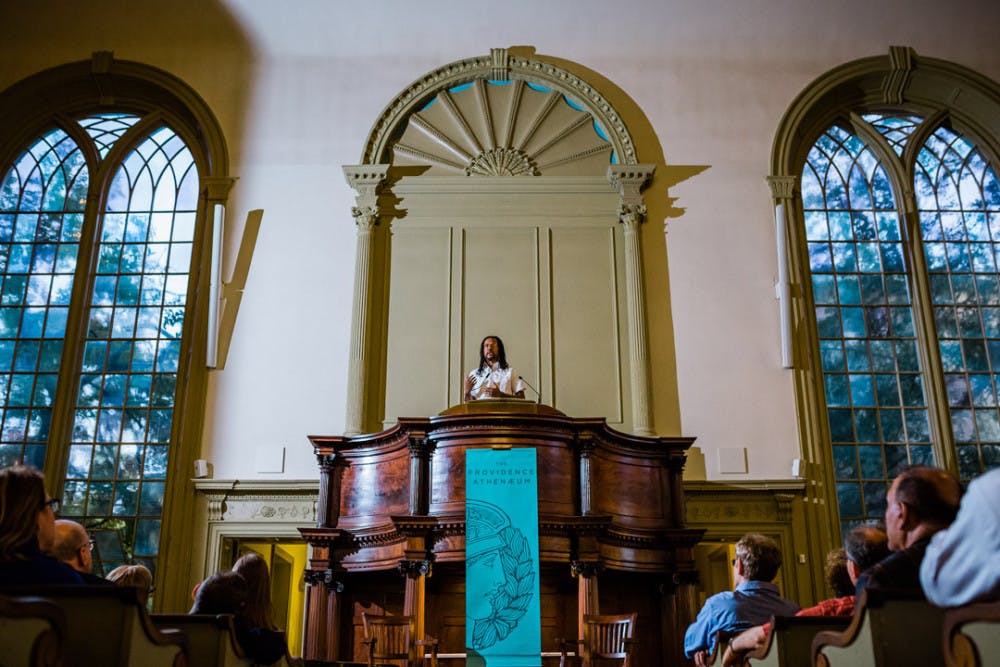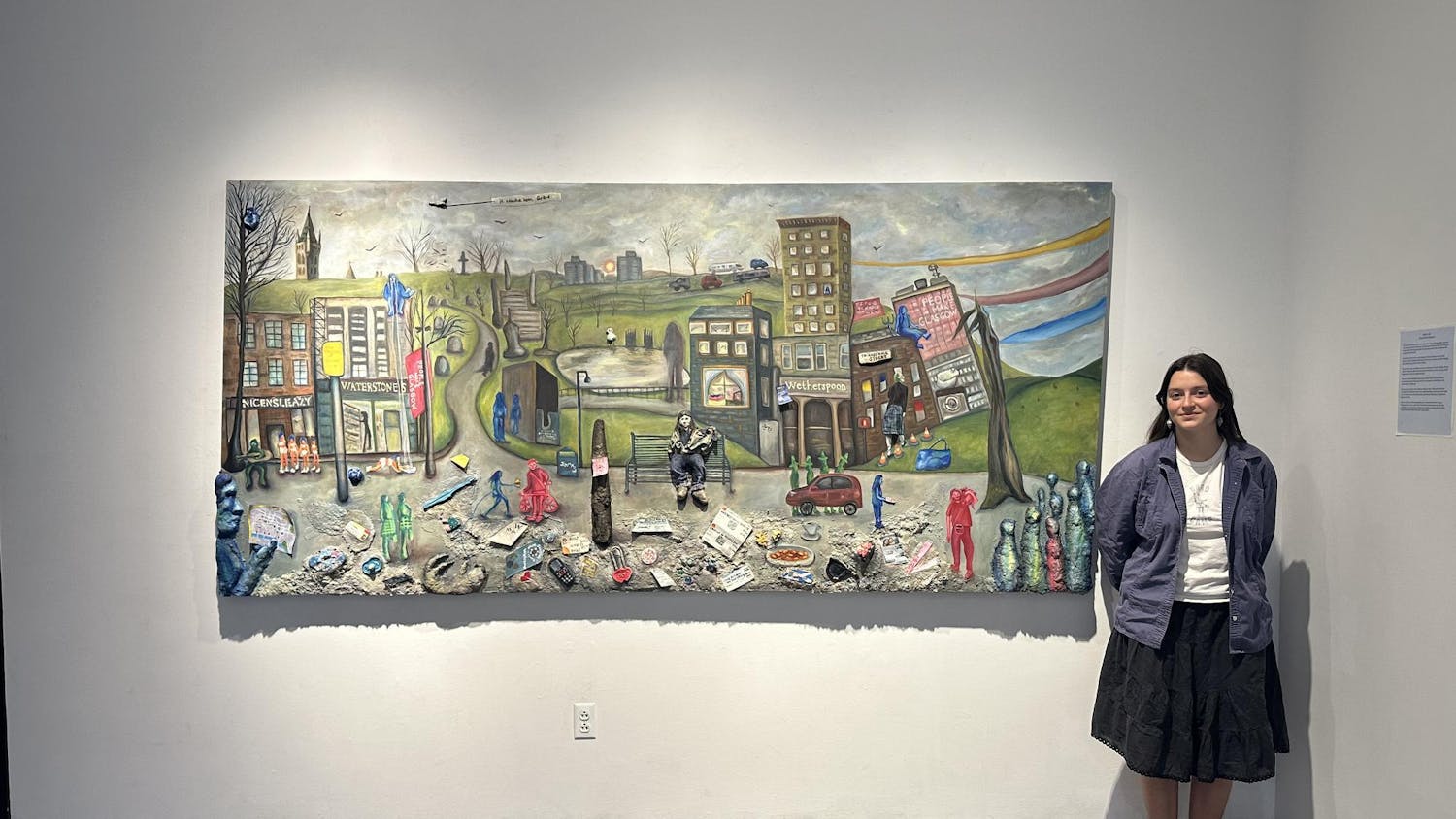Colson Whitehead, author of nine novels including the #1 New York Times best-seller “The Underground Railroad” and his latest 2019 release “The Nickel Boys,” took to the pulpit of the First Unitarian Church Friday night to read, laugh and discuss the qualms and joys of a writer’s life with a packed audience.
The Providence Athenaeum organized the event as a part of their fall season programming.
While introducing Whitehead, the Executive Director of the Athenaeum Matt Burriesci said, “Whether we realize it or not, the world that comes after this one will be defined by his work.” Whitehead rose to prominence following the release of “The Underground Railroad” in 2016. The novel tells the tale of Cora, a slave who travels on a literal railroad beneath the earth in search of freedom. This historical-fiction novel marked a change in Whitehead’s literary focus, a shift away from his previous science-fiction or dystopian works.
“He moves in and out of forms and historical periods like it’s no big deal, and all the while, he’s changing how we think, how we speak and hopefully how we move forward as a nation,” Burriesci added, noting the scope of Whitehead’s nine novels.
To the sound of roaring applause, Whitehead began his lecture by detailing his path to fiction writing. When he was young, Whitehead was inspired by the writers and media that surrounded him. “I really liked comics and science fiction and I adored Stephen King,” he said. But he was also attracted to the writer’s lifestyle, explaining to the amusement of the audience, “If you’re a writer, you can work from home. You don’t have to wear clothes or talk to people, and you just make up stuff all day.”
Whitehead discussed beginning his professional writing career at the Village Voice newspaper in New York. After dabbling in television critique, Whitehead was inspired by lingering thoughts from his previous television coverage to begin his first novel manuscript involving a sitcom.
Unfortunately, his idea was met with little interest from publishers. Whitehead found that Donna Summer’s Billboard Hot 100 rendition of Richard Harris’ song “MacArthur Park” captured his feelings at that time. In case the audience could not recall the tune, Whitehead played the song into the microphone through his iPad. Members of the audience slowly began to sing along until voices and laughter rose to fill the olive-green, domed ceiling of the church.
When the singing ended, Whitehead explained that the song’s lyrics, “Someone left the cake out in the rain / I don’t think that I can take it / ‘Cause it took so long to bake it,” spoke to his feelings of rejection and dejection. “‘MacArthur Park’ is an investigation of the artists’ journey,” he mused, listing the names of publishers who had left his first manuscript, which had taken so long to make, out in the rain.
Fortunately, that rejection did not last long.
For a portion of the evening, Whitehead read from “The Nickel Boys,” his most recent novel released in July of this year. The book follows Elwood and other boys from Nickel Academy, a corrupt juvenile detention center under the guise of a state-run reform school in the 1960s. It is based on the true story of the Dozier School for Boys in Florida — where many unmarked graves were discovered after the school’s closure in 2011 — which Whitehead came across while scrolling through his Twitter feed one day.
A New York Times review of “The Nickel Boys” noted that Whitehead “applies a master storyteller’s muscle not just to excavating a grievous past but to examining the process by which Americans undermine, distort, hide or ‘neatly erase’ the stories he is driven to tell.” This process unites Whitehead’s works, which delve into topics like slavery or urban America through fictionalization.
His ideas also come from dreams or childhood misunderstandings — like the belief that the Underground Railroad was a physical train. This concept for “The Underground Railroad” came to him two decades ago, but he explained, “Each time I finished a novel, I would pull out my notes and ask myself, ‘Am I ready?’ And the answer was always, ‘No.’” Fourteen years later, he decided he was ready. The novel won both the National Book Award and the Pulitzer Prize, topped the New York Times best-sellers list and put Whitehead on the cover of TIME magazine.
Speaking to aspiring writers — perhaps to those who are still watching their cakes melt in the rain — Whitehead said, “My advice would be to read and read and read to find out what kind of writer you want to be, and to write and write and write to find out what kind of writer you actually are.”





